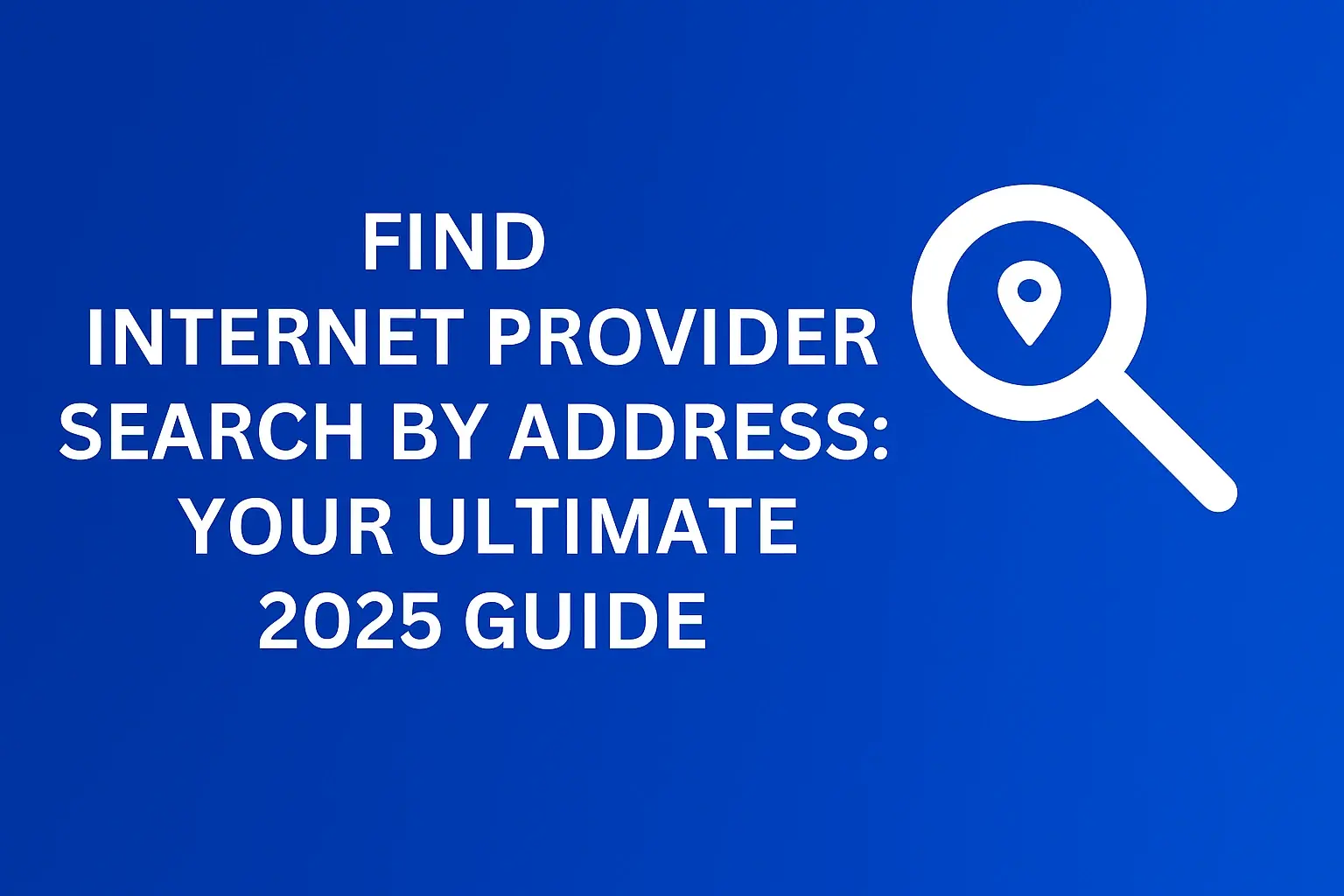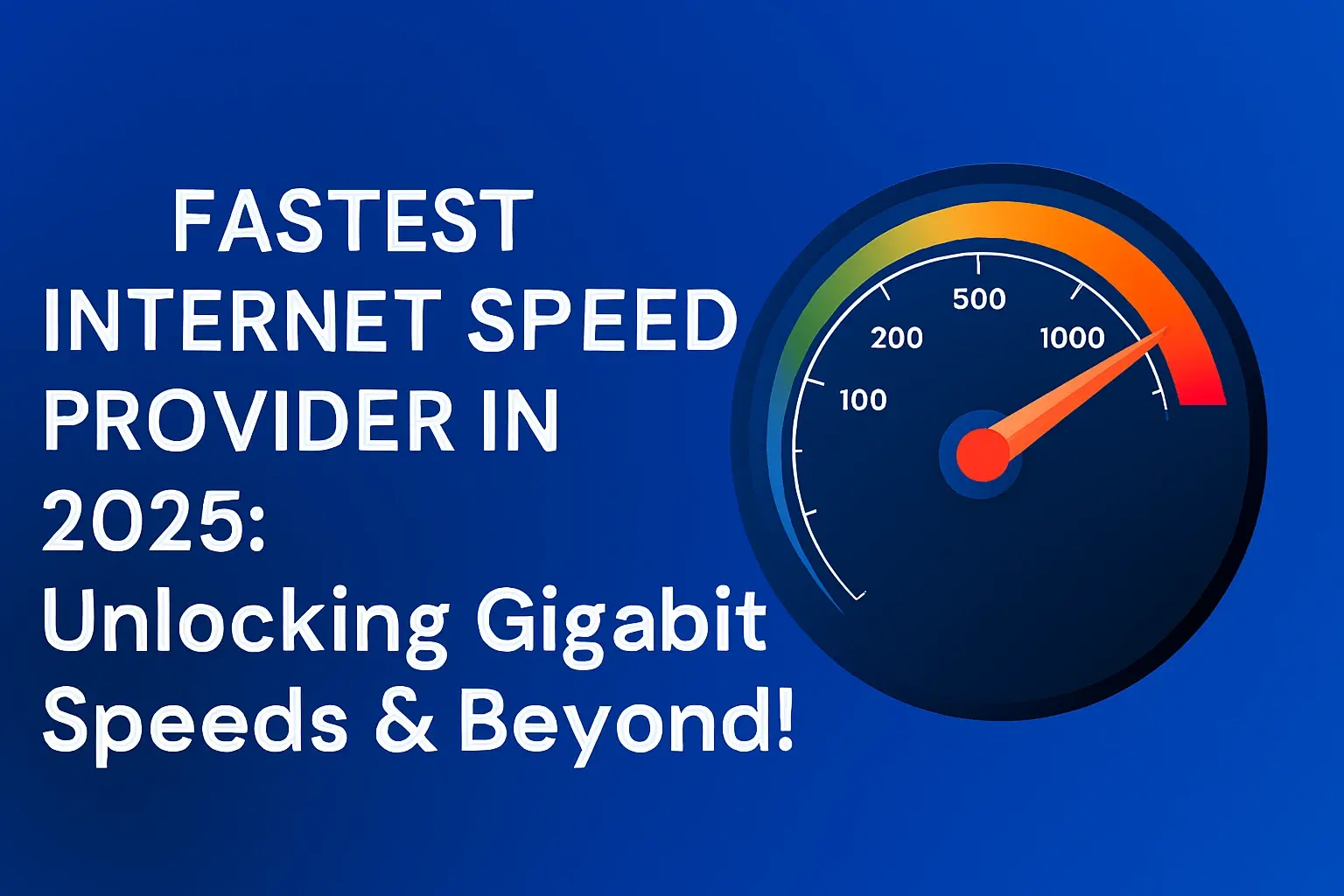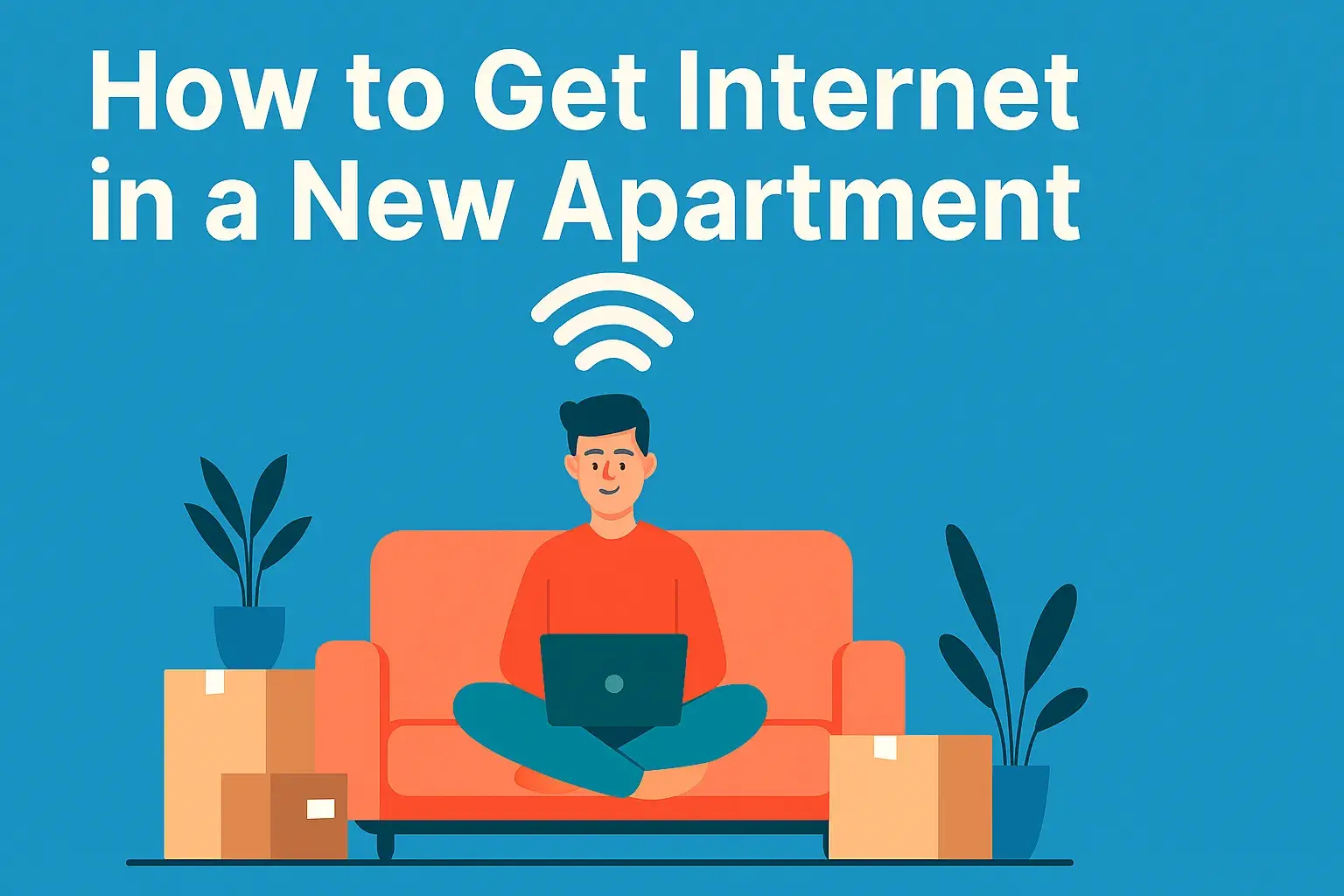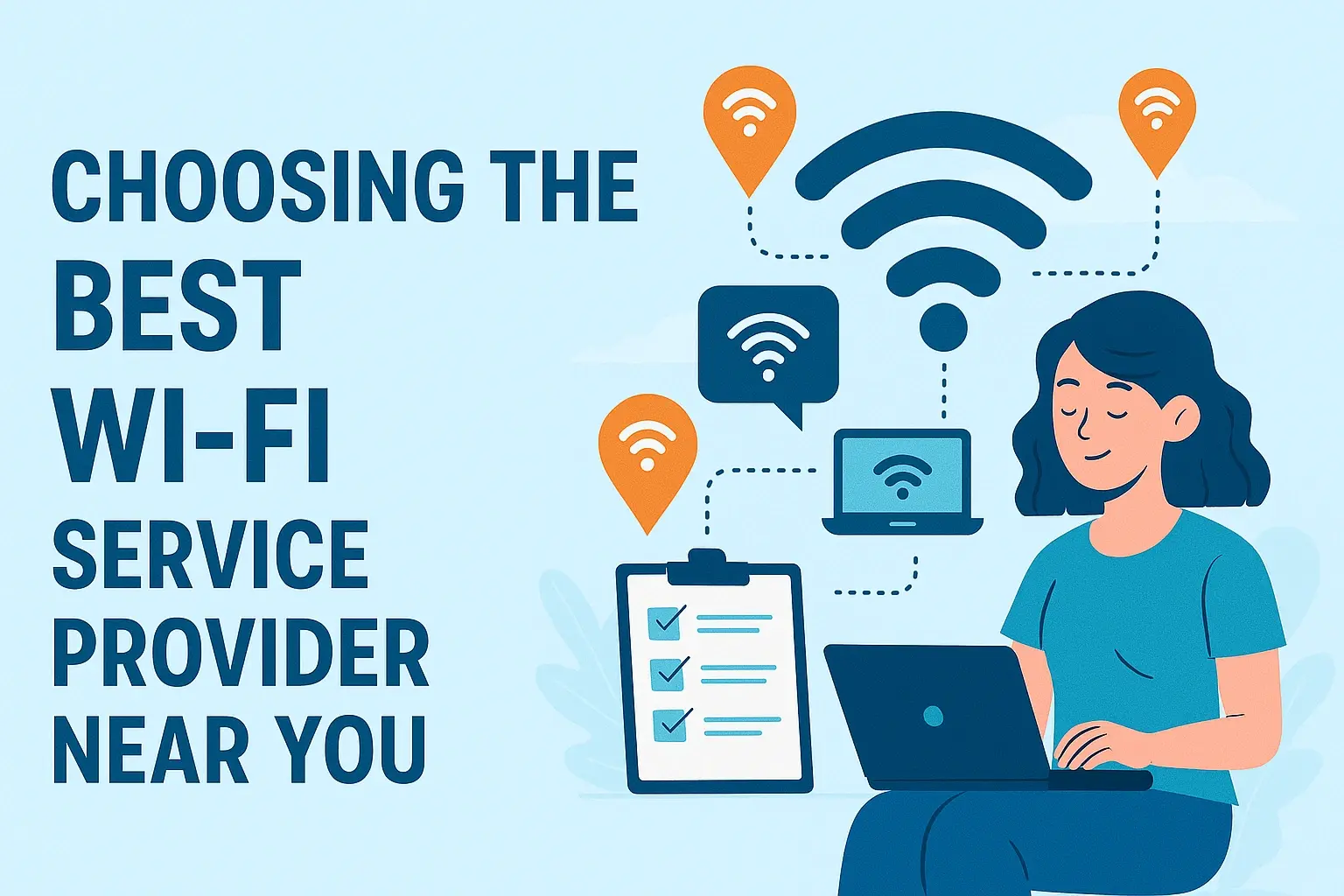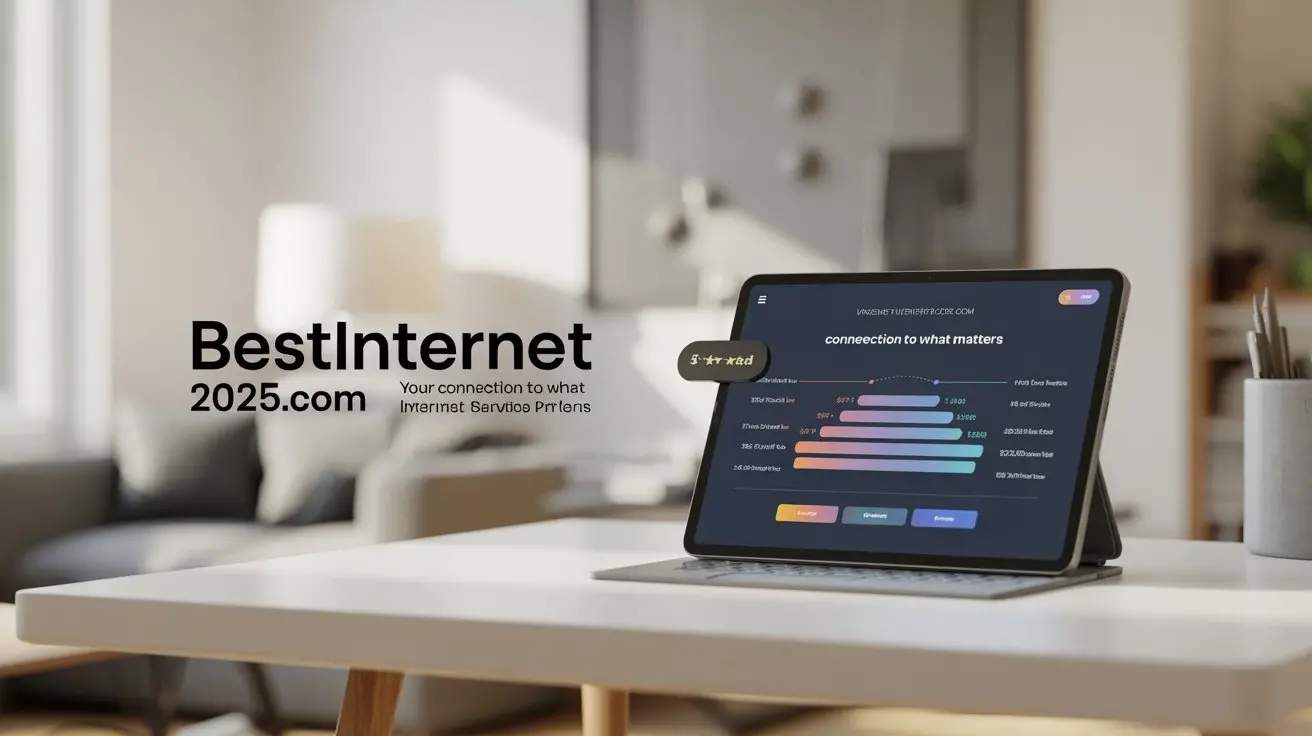5G Home Internet vs. Wired: Making the Right Choice

Understanding the Landscape: 5G Home Internet vs. Wired
Choosing the right home internet connection in 2025 involves navigating a landscape increasingly defined by the rise of 5G technology. While traditional wired options like fiber and cable have long been the benchmarks for speed and reliability, 5G home internet presents a compelling wireless alternative. This guide delves deep into the nuances of 5G home internet versus wired connections, empowering you to make an informed decision that aligns with your household's needs and future-proofing your digital life.
Speed and Performance: The Core Comparison
The most significant factor for many users when comparing internet services is speed and overall performance. This encompasses not just raw download and upload figures but also critical elements like latency and connection consistency. In 2025, both 5G home internet and wired connections offer a wide spectrum of performance, but their characteristics differ significantly.
Download and Upload Speeds
Download speeds are paramount for activities like streaming high-definition video, downloading large files, and browsing the web. Upload speeds are crucial for video conferencing, uploading content to the cloud, and online gaming where quick responses are essential.
Wired Internet Speeds (2025 Landscape)
Wired technologies continue to offer robust and often superior speeds, especially fiber optic connections. As of 2025, fiber optic internet can deliver symmetrical speeds, meaning upload speeds match download speeds, often reaching 1 Gbps or even 2 Gbps for residential users. Cable internet, while generally slower than fiber, has also seen significant upgrades, with many providers offering plans with download speeds of 500 Mbps to 1 Gbps. However, upload speeds on cable are typically much lower, often in the range of 10-50 Mbps. DSL, while still present in some areas, is generally the slowest wired option, with speeds varying widely but rarely exceeding 100 Mbps download.
5G Home Internet Speeds (2025 Landscape)
5G home internet leverages the latest generation of cellular technology to provide broadband speeds wirelessly. The performance of 5G home internet can be highly variable, depending on factors such as the specific 5G spectrum used (low-band, mid-band, or high-band/mmWave), network congestion, distance from the tower, and the quality of the user's gateway device. In ideal conditions, particularly with mid-band and high-band 5G, download speeds can rival or even exceed those of cable and some fiber plans, with averages ranging from 150 Mbps to over 1 Gbps. However, real-world speeds can fluctuate. Upload speeds on 5G home internet are generally lower than download speeds, typically ranging from 10 Mbps to 100 Mbps, though some providers are improving this. It's crucial to understand that 5G home internet performance is not as consistently predictable as wired connections, especially in less dense areas or during peak usage times.
Key Takeaway: For raw, consistent, and often symmetrical speeds, fiber optic remains the undisputed leader. Cable offers a strong balance for most users, while 5G home internet can be competitive, especially in areas with excellent mid-band or high-band 5G coverage, but may exhibit more variability.
Latency: The Hidden Factor
Latency, often referred to as ping, is the time it takes for data to travel from your device to a server and back. Low latency is critical for real-time applications like online gaming, live video conferencing, and remote work that requires instant feedback. High latency can result in lag, delayed responses, and a frustrating user experience.
Wired Internet Latency
Wired connections generally boast very low latency. Fiber optic connections typically offer the lowest latency, often below 10 milliseconds (ms). Cable internet usually has latency in the 10-30 ms range. DSL can have higher latency, sometimes exceeding 50 ms, making it less ideal for latency-sensitive applications. The direct physical connection minimizes the travel time for data packets.
5G Home Internet Latency
5G technology has made significant strides in reducing latency compared to previous cellular generations. In ideal scenarios, 5G home internet can achieve latency as low as 10-20 ms, which is competitive with cable and even some DSL connections. However, this is highly dependent on network conditions. Factors like the number of hops the data must take through the cellular network, signal strength, and network congestion can increase latency. While 5G is designed for lower latency, it's not always as consistently low as a direct fiber connection. For most streaming and general browsing, 5G latency is more than adequate, but serious online gamers might notice a slight difference compared to fiber.
Key Takeaway: Fiber optic offers the lowest and most consistent latency. 5G home internet's latency is improving and can be very good, but it's more susceptible to fluctuations than wired options.
Consistency and Reliability
Beyond peak speeds, the consistency and reliability of your internet connection are vital. No one wants a connection that frequently drops, experiences slowdowns during peak hours, or is affected by external factors.
Wired Internet Reliability
Wired connections, particularly fiber and well-maintained cable infrastructure, are generally considered highly reliable. They are less susceptible to environmental interference (like weather or physical obstructions) and network congestion that can plague wireless services. Once installed, a wired connection provides a stable pathway for data. However, wired connections can be susceptible to physical damage to cables (e.g., during construction) or issues with local network equipment.
5G Home Internet Reliability
The reliability of 5G home internet is a mixed bag and a key area where it differs from wired options. While 5G is a robust technology, its wireless nature means it's inherently more susceptible to environmental factors. Signal strength can be affected by building materials (especially thick concrete or metal), distance from the cell tower, and even weather. Network congestion is also a significant factor; during peak usage times, especially in densely populated areas where many users are sharing the same cell tower, speeds and reliability can decrease. Providers often implement network management practices that might deprioritize certain traffic or throttle speeds during congestion. However, for users in areas with strong, dedicated 5G coverage and less congestion, 5G home internet can be remarkably reliable.
Key Takeaway: Wired connections, especially fiber, offer superior and more consistent reliability due to their physical nature. 5G home internet's reliability is improving but remains more variable and dependent on signal strength and network conditions.
Installation and Setup: Ease of Access
The process of getting internet service up and running can be a significant factor in choosing a provider. Ease of installation and the need for professional service can influence how quickly you can get online.
Wired Internet Installation
Traditional wired internet installation, especially for fiber and cable, often requires a technician visit. This involves running a physical line from the street to your home, installing an outlet, and setting up a modem and router. While this ensures a robust connection, it can involve scheduling appointments, potential disruption to your home, and waiting periods that can sometimes stretch for days or weeks, depending on demand and technician availability. For DSL, installation might be simpler if a line already exists, but it still typically requires a technician. The upfront installation process for wired services can sometimes be more involved and time-consuming.
5G Home Internet Installation
One of the major selling points of 5G home internet is its simplified installation process. In most cases, 5G home internet is a plug-and-play solution. You receive a gateway device (which acts as both a modem and router) from the provider. You simply plug it into a power outlet, place it near a window for optimal signal reception, and follow on-screen instructions or a mobile app to connect your devices. No technician visit is usually required, and you can often be online within minutes of unboxing the equipment. This ease of setup makes 5G home internet an attractive option for renters or those who want to avoid the hassle of professional installation.
Key Takeaway: 5G home internet typically offers a significantly easier and faster self-installation process compared to the often technician-dependent installation of wired services.
Cost and Value Proposition
The financial aspect of choosing an internet service is always a critical consideration. This includes not only the monthly fees but also any upfront costs, potential hidden charges, and contract obligations.
Initial Equipment Costs
For wired internet, the cost of modems and routers can vary. Some providers include basic equipment with their plans, while others charge a monthly rental fee or allow you to purchase your own compatible equipment. Purchasing your own can save money in the long run but requires research to ensure compatibility. For fiber, the Optical Network Terminal (ONT) is usually installed by the technician and is typically included in the service. For 5G home internet, the provider usually supplies a proprietary gateway device. This device is often included with the service at no upfront cost, or for a nominal one-time fee. This simplifies the initial investment for users.
Monthly Service Fees
Monthly service fees are where the comparison becomes more nuanced. Fiber optic internet, while offering the best performance, can sometimes be the most expensive, especially for gigabit speeds. Cable internet generally falls in the mid-range, offering good value for its performance. 5G home internet is often positioned as a more affordable alternative, especially in areas where fiber or high-speed cable is not available or is prohibitively expensive. Many 5G home internet plans are priced competitively, often under $50-$70 per month, sometimes with promotional offers. However, it's essential to compare the advertised speeds and data caps (if any) for the price. Some 5G plans might offer unlimited data, which is a significant advantage.
Hidden Fees and Contracts
It's crucial to scrutinize the fine print for both types of services. Wired providers, especially cable and DSL, may have installation fees, equipment rental fees, and sometimes data caps that can incur overage charges. Many wired plans also come with annual contracts, and early termination fees can be substantial. 5G home internet providers are often trying to attract new customers and may offer more flexible, contract-free plans. However, it's still important to check for activation fees, any potential device purchase costs, and whether speeds are subject to deprioritization during network congestion. Some 5G providers might also have introductory pricing that increases after a certain period. Always ask about contract terms and any potential hidden charges before signing up.
Key Takeaway: 5G home internet often presents a more budget-friendly option with simpler upfront costs and potentially more flexible contract terms, while wired services, particularly fiber, can be more expensive but offer a more predictable cost for guaranteed performance.
Availability and Coverage: Where Can You Get It?
The most significant limiting factor for any internet service is its availability in your specific geographic location. This is where the comparison between 5G home internet and wired options can be stark.
Wired Internet Availability
Wired internet, particularly cable and DSL, has historically had widespread availability across most urban and suburban areas. Fiber optic, while expanding rapidly, is still concentrated in newer developments and more affluent neighborhoods due to the high cost of infrastructure deployment. In many rural areas, the only wired option might be slow DSL, if available at all. The availability of high-speed wired internet is often determined by the legacy infrastructure in place by large telecommunications companies.
5G Home Internet Availability
5G home internet is rapidly expanding its footprint, leveraging existing cellular towers. Its availability is primarily dictated by the presence of 5G network coverage from mobile carriers. In 2025, 5G home internet is most readily available in urban and suburban areas where carriers have invested heavily in their 5G networks, particularly mid-band and high-band spectrum. Availability can vary significantly even within the same city, depending on the specific carrier's network deployment. Some carriers are also beginning to offer 5G home internet in select rural areas, but coverage is generally less dense than in urban centers. The rapid rollout of 5G means that availability is constantly improving, making it an increasingly viable option for more households.
Key Takeaway: Wired internet, especially cable and DSL, has broader legacy availability. 5G home internet is rapidly expanding, particularly in urban/suburban areas with strong 5G network build-out, offering a new option where wired might be limited or slow.
Use Cases and Ideal Scenarios
Understanding your personal internet usage habits and needs is crucial for determining which technology will serve you best. Both 5G home internet and wired connections excel in different scenarios.
Who Benefits Most from 5G Home Internet?
Renters and Mobile Households: The ease of plug-and-play installation and the lack of long-term contracts make 5G home internet ideal for those who move frequently or prefer not to have permanent installations.
Areas with Limited Wired Options: If your only wired choices are slow DSL or expensive cable, and you have strong 5G coverage, 5G home internet can be a significant upgrade in speed and performance.
Budget-Conscious Users: When competitively priced, 5G home internet can offer a compelling value proposition, especially if unlimited data is included.
Light to Moderate Internet Users: For households primarily focused on streaming video (even 4K), general web browsing, social media, and basic online gaming, 5G home internet can easily meet these demands, provided the connection is stable.
Early Adopters: Those who want to experience the latest in wireless technology and are willing to tolerate potential minor fluctuations for cutting-edge service.
Who is Wired Internet Still the King For?
Serious Online Gamers: The consistently low latency and high reliability of fiber optic internet are unparalleled for competitive online gaming where every millisecond counts.
Heavy Uploaders and Content Creators: Professionals who regularly upload large video files, conduct high-quality live streams, or work with massive datasets will benefit immensely from the symmetrical upload speeds offered by fiber.
Businesses and Critical Workloads: For businesses that rely on stable, high-bandwidth, and low-latency connections for critical operations, wired connections, especially fiber, provide the highest level of assurance.
Households with High Simultaneous Usage: In large households with many devices streaming, gaming, and working simultaneously, the consistent, high bandwidth and stability of fiber or robust cable can prevent bottlenecks and ensure a smooth experience for everyone.
Areas with Poor Wireless Signal: If your home has thick walls, is in a remote location with weak cellular signals, or is prone to wireless interference, a wired connection will likely be far more reliable.
Let's summarize the core differences in a table for quick reference:
| Feature | 5G Home Internet (2025) | Wired Internet (Fiber/Cable) (2025) |
|---|---|---|
| Download Speeds | 150 Mbps - 1+ Gbps (variable) | 500 Mbps - 2+ Gbps (consistent) |
| Upload Speeds | 10 Mbps - 100 Mbps (generally lower than download) | 10 Mbps - 2+ Gbps (symmetrical on fiber, lower on cable) |
| Latency | 10-20 ms (can fluctuate) | <10 ms (fiber), 10-30 ms (cable) (consistent) |
| Reliability | Moderate to High (dependent on signal, congestion) | High to Very High (less susceptible to external factors) |
| Installation | Easy, self-install (plug-and-play) | Often requires professional technician |
| Availability | Expanding rapidly, primarily urban/suburban | Widespread (cable/DSL), growing (fiber) |
| Cost | Often more affordable, competitive pricing | Can be more expensive, especially fiber |
| Contracts | Often contract-free or flexible | Often requires annual contracts |
Future-Proofing Your Connection
When making a long-term decision about your internet service, consider which technology is best positioned to handle future demands. The internet landscape is constantly evolving, with increasing bandwidth requirements for everything from immersive virtual reality experiences to more sophisticated smart home ecosystems and higher-resolution streaming content.
Fiber optic technology, with its inherent capacity for extremely high bandwidth and its ability to be upgraded at the network level without replacing physical cables, is often considered the most future-proof solution. Its ability to deliver symmetrical multi-gigabit speeds means it can easily accommodate the increasing demands of tomorrow's internet applications.
5G technology is also designed with the future in mind. As 5G networks mature and new spectrum bands become available, speeds and capacity are expected to increase further. Future iterations of 5G (like 5G Advanced and eventually 6G) promise even lower latency and higher throughput. However, the wireless nature means that physical infrastructure upgrades and spectrum availability will continue to be key factors in its long-term evolution. For 5G home internet, the gateway devices will also need to be upgraded periodically to take advantage of network advancements.
Wired cable internet (DOCSIS standards) has also shown remarkable resilience and has been upgraded significantly over the years. Future DOCSIS versions are expected to push speeds even higher, potentially rivaling fiber for download speeds, though upload speeds will likely remain a limitation compared to fiber. The existing infrastructure makes it a practical upgrade path for many.
Key Consideration: While 5G is a forward-looking technology, fiber optic currently offers the most robust and scalable path for future-proofing your home internet connection due to its inherent capacity and upgradeability.
Making the Final Decision: A Checklist
To help you cut through the noise and make the best choice for your home, consider this actionable checklist:
-
Assess Your Needs:
- What are your primary internet activities? (Streaming, gaming, working from home, general browsing, uploading large files?)
- How many devices are typically connected simultaneously?
- Do you require consistently low latency for specific applications (e.g., competitive gaming, professional video conferencing)?
- What are your minimum acceptable download and upload speeds?
-
Check Availability in Your Area:
- Use online tools from major ISPs to check for fiber, cable, and 5G home internet availability at your specific address.
- Don't rely solely on general area coverage; precise address checking is crucial.
- For 5G, check coverage maps for the specific carriers you are considering and look for indicators of mid-band or high-band (mmWave) coverage if possible, as these offer the best speeds.
-
Compare Speeds and Performance Metrics:
- Look beyond advertised "up to" speeds. Research real-world performance reports for your area if available.
- Compare advertised download and upload speeds. Prioritize symmetrical speeds if uploading is critical.
- Consider latency: Is it consistently low enough for your needs?
-
Evaluate Costs:
- Calculate the total monthly cost, including any equipment rental fees, taxes, and surcharges.
- Factor in any upfront installation or activation fees.
- Understand contract terms: Are you locked into a long-term contract? What are the early termination fees?
- Are there any data caps or usage restrictions?
-
Consider Installation and Reliability:
- How important is a quick, self-install process?
- How reliable is the service in your specific location? Read reviews and ask neighbors if possible.
- Are there potential environmental factors that could affect a wireless connection (e.g., thick walls, interference)?
-
Read the Fine Print:
- Understand any policies regarding network management, speed throttling, or deprioritization.
- Clarify what happens if you experience service issues or need technical support.
By systematically going through these steps, you can systematically narrow down your options and identify the internet service that best fits your unique circumstances.
Conclusion: Your Internet Future Awaits
In 2025, the choice between 5G home internet and traditional wired connections is more complex and nuanced than ever. For users prioritizing the absolute highest and most consistent speeds, lowest latency, and unparalleled reliability, fiber optic internet remains the gold standard, albeit often at a higher price point and with more involved installation. Cable internet continues to offer a strong, reliable middle ground for many households.
However, 5G home internet has emerged as a powerful and increasingly viable competitor. Its ease of installation, competitive pricing, and the potential for very high speeds make it an attractive option, particularly for renters, those in areas underserved by high-speed wired options, or individuals seeking a more flexible and budget-friendly solution. While it may exhibit more variability in performance compared to wired connections, ongoing network advancements are rapidly closing the gap.
Ultimately, the "right" choice hinges on your individual needs, your location's specific availability, and your budget. By carefully evaluating speed requirements, latency needs, installation preferences, and cost considerations, you can confidently select the internet service that will best power your digital life today and into the future.
Faq
Is 5G Home Internet Reliable Enough for Gaming and Streaming?
5G has potential, but how reliable it is for gaming and streaming depends on having consistent speeds and lower latency. However, things like congestion can impact these speeds. Wired connections usually provide a more stable experience for activities that need a lot of data.
Can Wired Internet Provide Better Security Than 5G?
Both connections can be safe if you take the right steps. It is important to choose internet providers that have strong security measures. Also, using safe browsing practices is key for any internet plan.
How Does Weather Affect 5G Home Internet Compared to Wired?
Wired internet, which is connected by a cable, is less likely to be affected by bad weather. On the other hand, 5G home internet uses wireless signals. This means it can sometimes slow down or have interruptions during strong storms. This can affect the reliability of the network and its consistent speeds.
